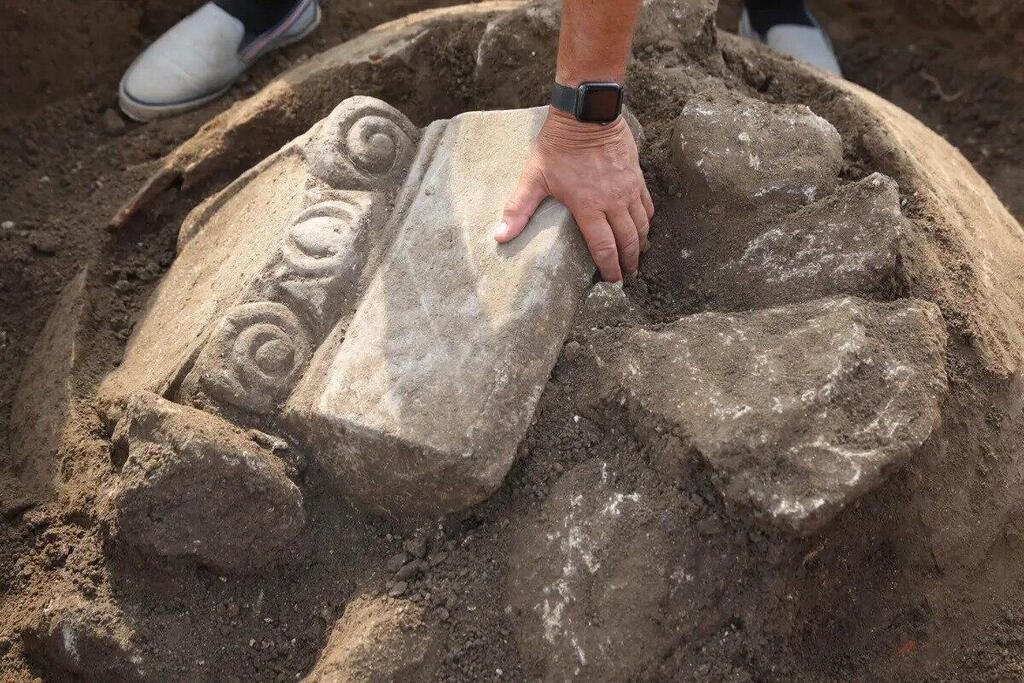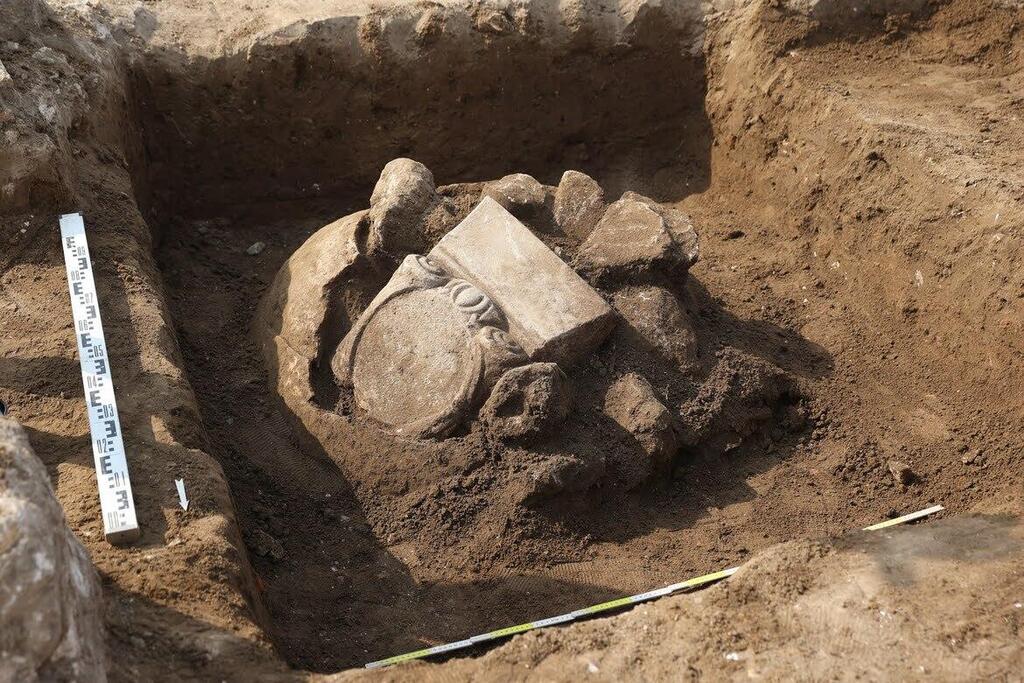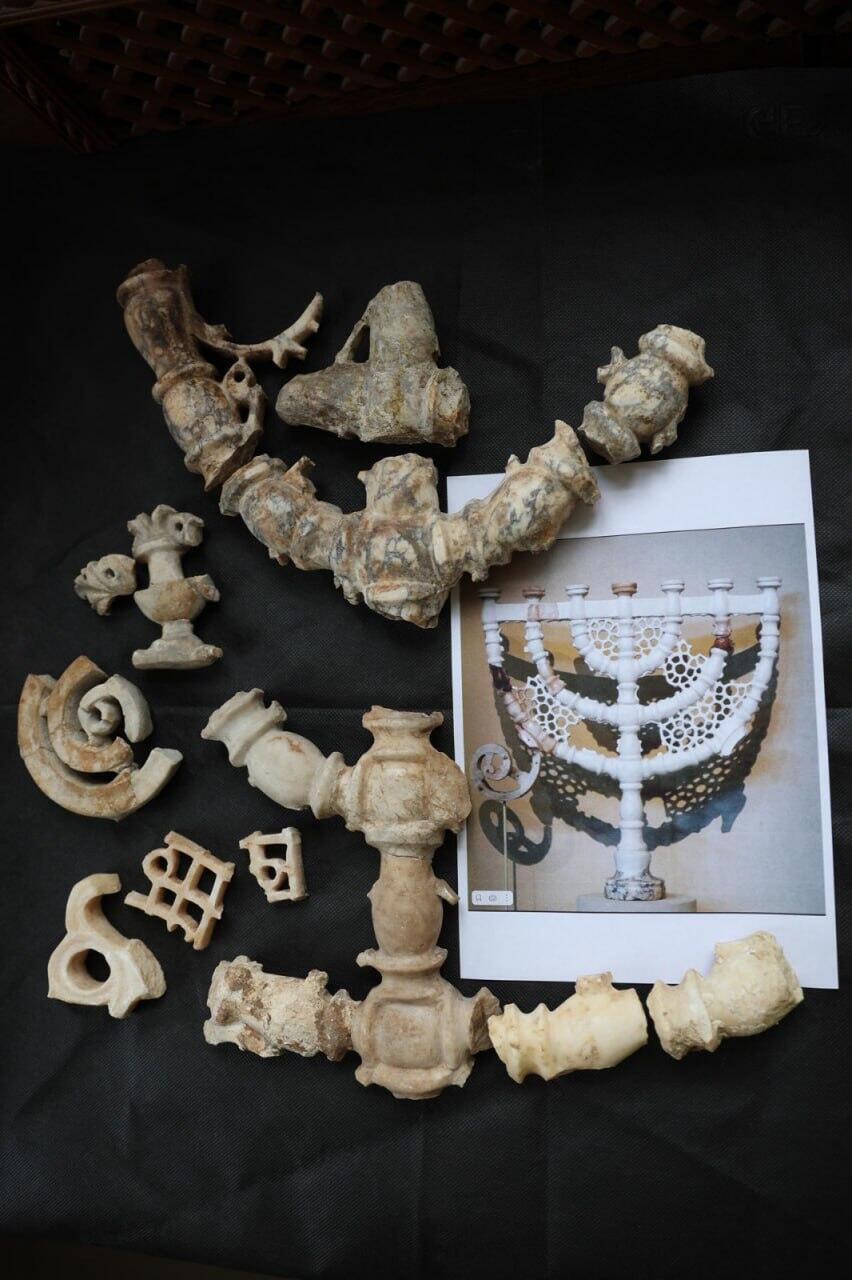Getting your Trinity Audio player ready...
Russian archeologists uncovered an ancient synagogue dating back to the first century, during excavations in the ancient city of Pangoria on the Taman Peninsula.
Read more:
A team of archaeologists from the Russian Academy of Science who were digging near the city of Krasnodar uncovered a rectangular structure of two rooms, each with an area of more than 60 square meters, containing artifacts including menorahs, altars and fragments of marble steles, one bearing the word synagogue in the Ancient Greek language.
The structure was described to have rich decorations on its painted walls, and tiles on its roof. The Jewish marble found inside was different from the kind used in Israel. Analysis of the fragments of the preserved decoration led the archeologists to conclude that the synagogue was erected at the turn of the millennium and existed for at least 500 years.
The researchers believed that the synagogue was built at the time of the Second Temple and noted that few synagogues during that time, were built by Jews who traveled far from Jerusalem. The earliest known thus far, were from the 3rd century. Archeologists estimated that the structure remained intact until the sixth century when Phanagoria was sacked and burned by barbarian tribes.
The news was received with excitement by the Jewish community in Krasnodar, who said they were continuing a tradition lasting thousands of years. A delegation from the community, led by local Rabbi Menachem Mendel Lazar, was expected to visit the site in the coming days, at the invitation of the archaeological authority, which said that they were interested in cooperation in order to learn more about the discoveries and others found in Russia





